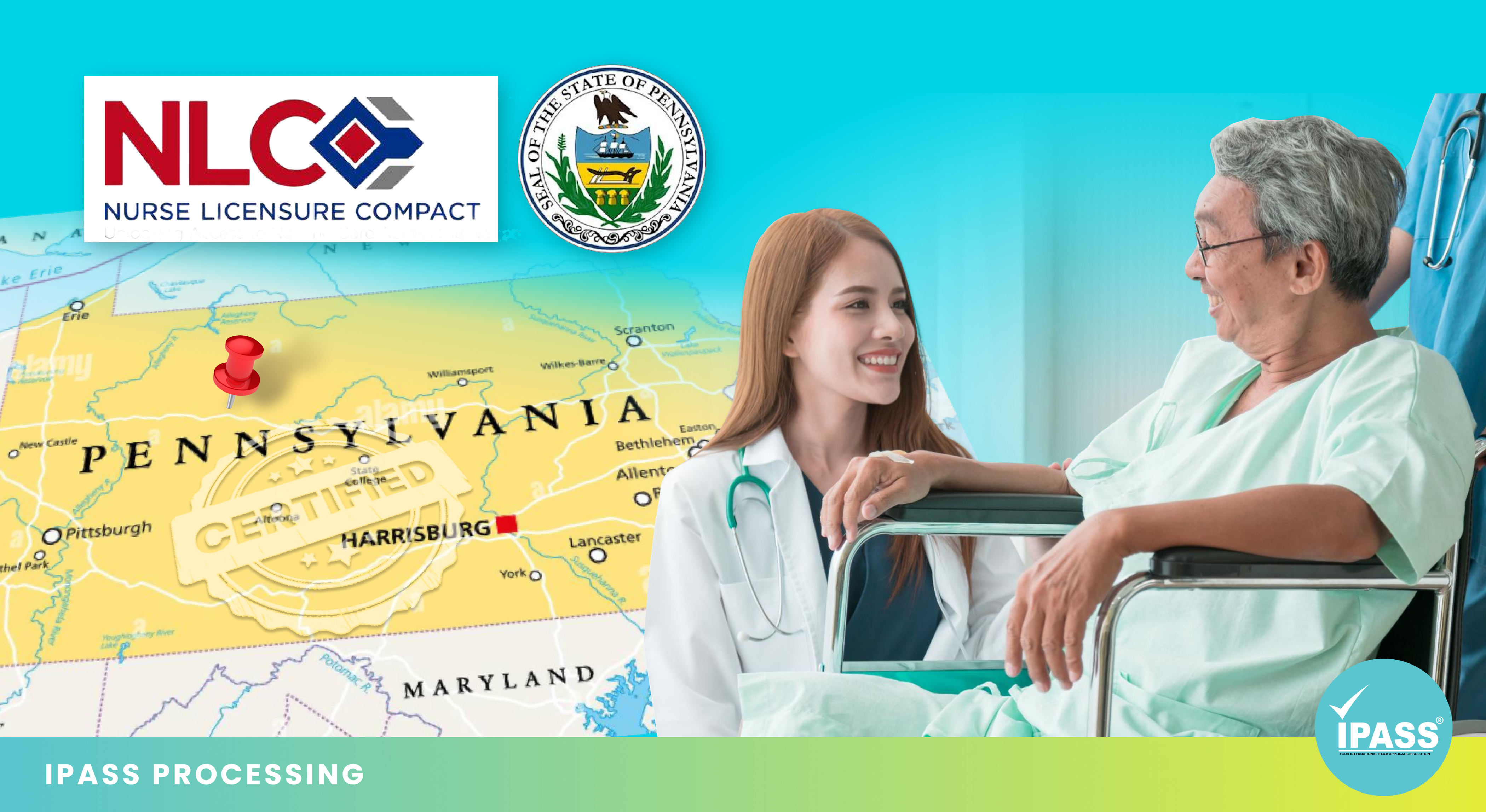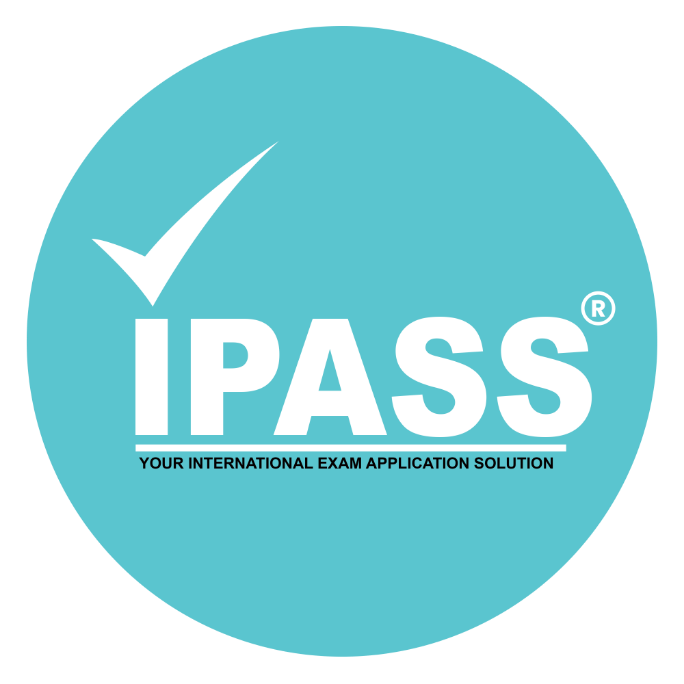Your cart is currently empty!

Pennsylvania Embraces Multi-State Nursing License
Starting September 5, Pennsylvania will join the growing number of states implementing the Multi-State Nursing License initiative. This endeavor aims to streamline the process for nurses to practice across state lines, enhance mobility, and address nursing shortages. Thus, knowing about multi-state nursing licenses and the Nurse Licensure Compact (NLC) is crucial to understanding this transition.
Understanding the Multi-State Nursing License Initiative
The Multi-state Nursing License initiative allows nurses to practice in different states without redundant licensure processes. By endorsing the NLC, Pennsylvania will allow nurses licensed in other NLC states to practice in their state without obtaining an additional license.
Under the NLC, nurses can work in their home state and other participating NLC states. Furthermore, this initiative aims to remove barriers that impede nurses’ mobility, boosting healthcare delivery efficiency across state lines.
The Concept Behind Multi-State Nursing Licenses
Multi-state nursing licenses are rooted in the idea that healthcare does not stop at state borders. The healthcare industry constantly changes and needs professionals, so multi-state licenses can benefit nurses looking to advance their careers. By obtaining a multi-state license, nurses can use their skills and knowledge to help in areas with shortages or particular healthcare issues. For instance, a nurse with a multi-state license can quickly travel to the affected state to assist in a natural disaster or public health emergency.
Nurses can provide immediate assistance and support to the affected population without additional licensure or bureaucratic hurdles. In addition, this flexibility and mobility can make a significant difference in times of emergencies and can help save lives. Furthermore, multi-state licenses also benefit nurses who may have personal reasons for wanting to move or practice in different states. This exposure to diverse healthcare settings can enhance their skills, broaden their perspectives, and ultimately contribute to their professional development.
States Not Included in the Multi-State Nursing License
While Pennsylvania is the 41st US jurisdiction to enact the Nurse Licensure Compact, 15 states and jurisdictions still need to join.
States with PENDING NLC Legislation:
1. Alaska
2. Illinois
3. Massachusetts
4. Michigan
5. Minnesota
6. New York
7. Rhode Island
States and Jurisdictions NOT CURRENTLY CONSIDERING NLC:
1. American Samoa
2. California
3. Connecticut
4. District of Columbia
5. Hawaii
6. Mariana Islands
7. Nevada
8. Oregon
The Role of the Nurse Licensure Compact
The Nurse Licensure Compact (NLC) operates on a mutual recognition model, streamlining the process for nurses to possess a multi-state license acknowledged across all participating states. In addition, this framework eliminates the necessity for nurses to go through the process of applying for a nursing license per state. Hence, they’re bypassing the need for supplementary license applications or redundant background checks.
The NLC is based on the principle of interstate recognition, promoting consistency in nursing practice standards and patient safety across participating states. Moreover, the NLC fosters collaboration and cooperation among state Boards of Nursing (BON). It encourages sharing resources, expertise, and regulatory practices to improve nursing education, licensure processes, and healthcare quality.
Pennsylvania’s Transition to Multi-state Licensing
Pennsylvania’s transition to multi-state nursing licensing has been a legislative journey to align the state with the rapidly changing healthcare landscape. In addition, this transition benefits current and future nurses by enhancing their professional opportunities and easing mobility between states.
The Legislative Journey to Multi-state Licensing
Embracing multi-state licensing in Pennsylvania involved comprehensive legislative efforts to amend existing nursing licensure laws. Thus, state legislators recognized the need to remove barriers for nurses and improve communication to ensure safe and effective nursing practice.
Through this legislative journey, Pennsylvania has set in motion the mechanisms needed to facilitate the implementation of multi-state nursing licenses. With the finalization of these legislative changes, nurses in Pennsylvania can look forward to the benefits of being part of the NLC.
Implications for Current Pennsylvania Nurses
Nurses with a Pennsylvania nursing license can obtain a multi-state nursing license without going through additional application processes or requirements. It implies that current Pennsylvania nurses can practice in other NLC states without additional licensing procedures. Moreover, it will open new professional avenues and improve healthcare delivery across state lines, addressing critical nursing shortages in various regions.
Benefits of Multi-State Nursing Licenses in Pennsylvania
Embracing multi-state nursing licenses in Pennsylvania has several benefits that positively impact nurses, healthcare systems, and the overall population. Enhancing mobility for nurses and addressing nursing shortages are two critical advantages of this transition.
Enhancing Mobility for Nurses
With multi-state nursing licenses, nurses in Pennsylvania gain increased professional mobility. They can take advantage of healthcare opportunities in other NLC states, allowing them to explore different healthcare settings, diverse patient populations, and new areas of specialization.
This increased mobility aligns with the evolving nature of the nursing profession. Therefore, nurses can gain valuable experience and contribute to improved patient care by working in different healthcare environments.
Addressing Nursing Shortages
Nursing shortages remain a pressing concern in many states, including Pennsylvania. By embracing multi-state nursing licenses, Pennsylvania can tap into the pool of qualified nurses from other NLC states to alleviate nursing shortages within the state.
This influx of nurses can help fill staffing gaps, ensure a sufficient nurse-to-patient ratio, and improve access to quality healthcare services for patients across Pennsylvania. Moreover, this collaborative effort supports the overall goal of providing safe and efficient nursing care to individuals in need.
Potential Challenges When Implementing the Multi-State Nursing License
While the transition to multi-state nursing licenses in Pennsylvania presents numerous benefits, it also brings potential challenges. Addressing regulatory concerns and implementing safeguards are essential to ensure the success and integrity of this initiative.
Regulatory Concerns and Safeguards
Regulatory concerns arise when nurses licensed in other states practice in Pennsylvania under the multi-state nursing license. Ensuring coordination between state nursing boards and effective communication mechanisms is crucial to maintaining consistent nursing practice standards and protecting patient safety.
States can ease regulatory concerns by sharing disciplinary info and reviewing nurses’ credentials when seeking a multi-state license. Furthermore, state nursing boards must collaborate and exchange information to ensure that nurses maintain the highest standards of nursing practice, regardless of which state they are in.
Ensuring Quality of Care Across States
With multi-state nursing licenses, Pennsylvania nurses may practice in different states with varying healthcare systems and regulations. Thus, ensuring the quality and consistency of care nurses deliver across state lines is essential to this transition.
Pennsylvania improves nursing care by encouraging collaboration among state nursing boards for multi-state licensed nurses. This collaborative approach will help maintain high standards of nursing practice across participating states, safeguarding the well-being of patients wherever they receive care.
Looking Forward: The Future of Nursing in Pennsylvania
The transition to multi-state nursing licenses marks a significant milestone for nursing in Pennsylvania. By embracing this initiative, the state paves the way toward a more dynamic and interconnected nursing profession with far-reaching implications for nursing education, training, and healthcare delivery.
Pennsylvania’s nursing education and training programs must adapt to the changing landscape of multi-state nursing licenses. It will be crucial to incorporate elements that prepare nursing students to practice in multiple states and expose them to diverse healthcare settings. Collaboration between nursing boards and educational institutions in NLC states can improve nursing professionals’ skills to tackle challenges in healthcare.
The Takeaway
The transition to multi-state nursing licenses will have long-term effects on healthcare delivery in Pennsylvania. Nurses practicing across state lines can bring innovative approaches, best practices, and improved patient outcomes to their own state’s healthcare system.
Pennsylvania is working to improve healthcare and help nurses by addressing shortages, supporting mobility, and ensuring safety. However, the ultimate beneficiaries are the individuals and communities across Pennsylvania who will receive improved and more accessible healthcare services.
Recommended Reads
- AHPRA Registration 2025: Updated Pathways for IQRNs
- The Benefits of Pursuing a Midwifery Career in the UK
- Types of Nurses: Discover Your Perfect Nursing Path
- IPASS Online NCLEX RN Review Course Now on Its 17th Cycle
- Pearson Vue NCLEX Testing Centers in the Philippines
Recommended Topics
- ASCPi (1)
- Australia (8)
- Canada (5)
- Exam Tips (28)
- General (120)
- IPASS Events (10)
- IPASS News (130)
- Middle East Nursing (17)
- NCLEX (62)
- New Zealand (3)
- NMBI Ireland (1)
- Online Review (13)
- PNLE Online Review (1)
- Tourist Visa (1)
- UKNMC (1)
- US Nursing (12)
- UWorld (1)
- VisaScreen (3)
2 responses to “Pennsylvania Embraces Multi-State Nursing License”
What are requirements to be qualified in this nursing position?
Do we still have to take NCLEX in Multi State Licensing Intiative?
What are the eligibility requirements to qualify for this?








Leave a Reply